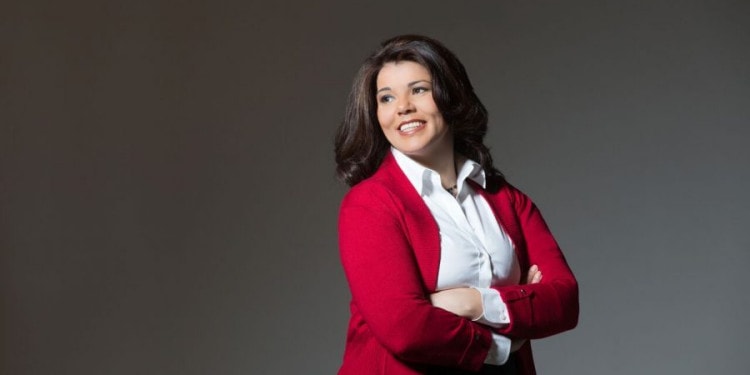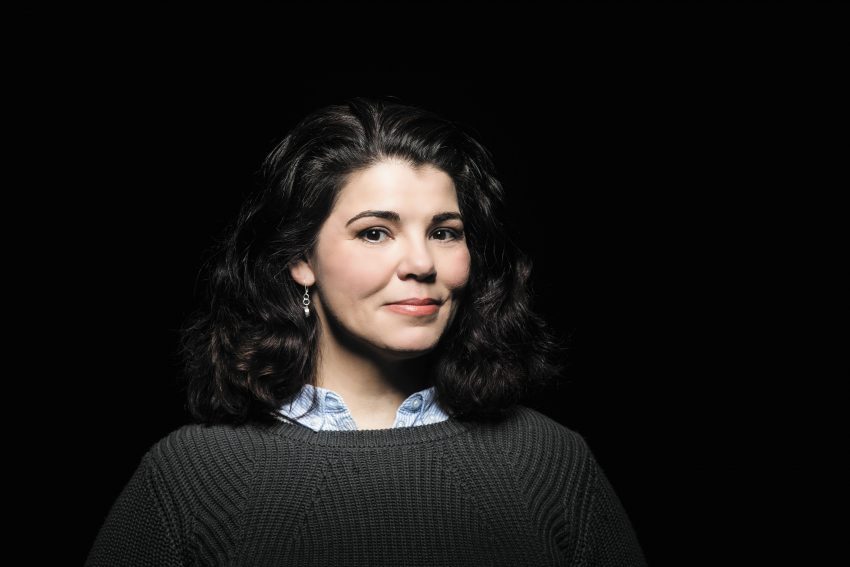Imagine the situation: you are having a conversation with a friend, but he is not really listening to you; instead, he endeavors to show his attention by mumbling “supportive” words like “Uh huh,” “Mm-hmm” and nodding a lot. Familiar, isn’t it?
Celeste Headlee, an award-winning American journalist, host of the daily news show, speaker, and author, knows how to hold conversations effectively. She spoke at TEDx CreativeCoast with a topic “10 ways to have a better conversation” and published a book “We Need To Talk: How to Have Conversations That Matter”
Impakter Magazine had an interview with Celeste Headlee and discussed why people are not having good conversations and how to become better at communicating with each other.
Impakter Magazine: Celeste, tell us: what motivated you to write and talk about communication between people?
Celeste Headlee: Well, it started with a prompt from TED. I was invited to be a speaker at a TEDx Talk in Georgia, and the thing they asked me was, “What bothers you the most, and how would you fix it?” And after all these years, having all these conversations as a journalist, the thing that bothered me the most was that people don’t have good conversations anymore. They talk a lot, but they are not actually having a good conversation.
You know, I think the TED talk at this point has over 2 million views, and the reason for that is because we are all coming to realize that we are not having good conversations. I think that’s starting to dawn on us, that maybe our smartphones are interfering our ability to actively connect with other human beings in authentic ways. I see it all over the place, and that’s why I think it impacts us at work, at home, and it apparently affects us politically. I think it has reverberations all throughout our lives as human beings.
In the photo: Celeste Headlee – Photo Credit Jeff Rothman
How long have you worked on this topic?
C.H.: I started writing the TED Talk in late 2014, but by that time I had already been researching good conversation and communication skills for myself, probably at least 8 years prior, because I wanted to become a better interviewer.
Nowadays we communicate with each other mostly through emails and chats, especially young people. What is your opinion about this communication style and what are some possible consequences we should be aware of in the future?
C.H.: Well, one of the consequences is that young people think that texting someone is the same as having a conversation and is very much not. It is not a replacement for, and it is not even a good tool for communication. If you’ve had misunderstandings through email or through texts, then you already know that, but we do it anyway because it’s convenient.
You said at the beginning of our conversation: “People talk a lot, but they are not having good conversations.” What about listening classes? Might they help to solve the problem?
C.H.: In fact, there is a really great research out of Australia and New Zealand that shows that you just don’t pick up listening skills while you are learning other things. Human beings do not listen well naturally. You have to learn how to listen. We have a lot of public speaking courses available, but we do not have public listening courses. What we need are courses that teach people how to listen. If we are all better listeners, 1) we all would be smarter, because we‘d learn more; and 2) we would be more empathetic because listening to people, and their stories are one of the best ways to increase your empathy.
Can you please share a piece of advice on how to better hold conversations?
C.H.: The one thing you can do right now, starting today, is to take a breath before you respond to somebody. The reason I say that is because, on average worldwide, the amount of time, the amount of space in between one person ending a sentence and another person responding is less than half a second. That means we are not actively listening to each other; we are waiting for a break for when we can talk again. So, the easiest thing you can do is to take a breath. Take your time. It is okay to let silence in every once in awhile, and the silence of couple seconds is sometimes all that you need to really hear to the end, the real words people said. To do that, you need time to hear them out before you respond. Don’t just wait for your chance to reply.
Can you please tell us more about your book about conversations and communication, “We Need to Talk”? What is the purpose of it?
C.H.: The only thing I knew about communication was that I was doing it wrong. I made mistakes, and so I had to figure out how to fix them. So I would do a lot of research, learning whatever I could, and then I would go back to my radio studio and test it out with real human beings. This book is the distillation of all those years of me trying things out to make myself into a better conversationalist. I read a lot of studies, and basically, a third of the book is scientific research, because you have to go back to the original studies to figure out what questions scientists were really trying to answer and what answers they actually found. ”We Need to Talk” is trying to answer a very specific question: “Why is communication not working and how can I make it work?”.
You are a journalist, you have your own radio talk show, you write books, you give talks, and you are also an opera singer. How do you find time for all of this?
C.H.: I actually don’t know the answer to that. I think the secret is setting deadlines, I am a journalist, and I respond to deadlines, so while I wrote “We need to talk,” I put time aside. The same way you set time aside to go to the gym, I set time in my schedule for writing. You can’t just put it off until the times when you feel like doing it because then it is never going to happen. You just have to bite the bullet and sit down once a day, write for 30-60 minutes, get it over with and meet your deadlines. Deadlines are magic. They help you achieve things.
What are your plans for this year?
C.H.: I have a lot of speeches! I give speeches all over the world with different companies and different groups on how to better converse, how to communicate better. I will give a speech at the Glimmerglass festival (Breaking Glass: Hyperlinking Opera & Issues) at Atlanta, Georgia on 10th October 2018. Then I will visit the 11th Annual Savannah Festival on 17th February and the Conferences For Women at San Jose, CA, at 23rd February 2018
EDITOR’S NOTE: The opinions expressed here by Impakter.com columnists are their own, not those of Impakter.com.










